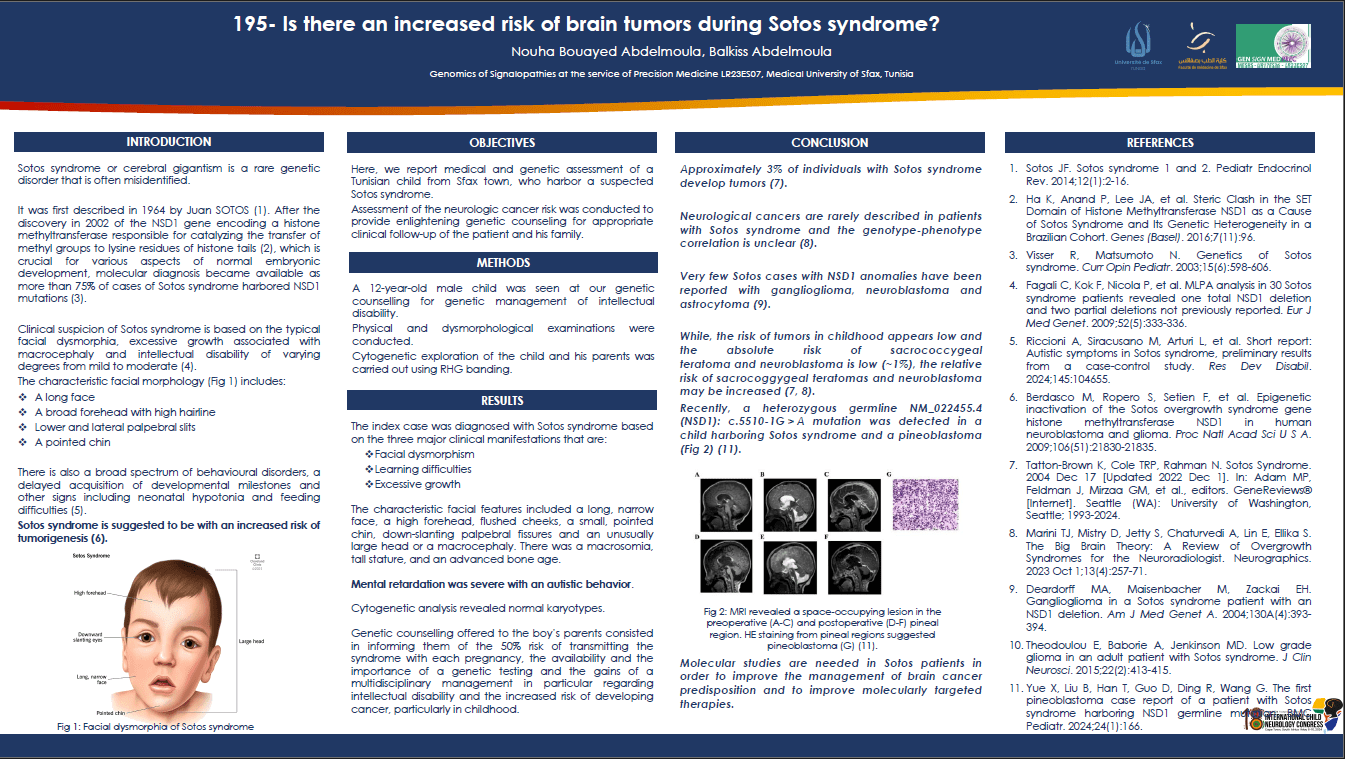Is There An Increased Risk Of Brain Tumors During Sotos Syndrome?
Objectives Sotos syndrome is suggested to be with an increased risk of tumorigenesis. Methods A 12-year-old male child was seen at our genetic counselling for genetic management of intellectual disability. Results The index case was diagnosed with Sotos syndrome based on the three major clinical manifestations that are facial dysmorphism, learning difficulties and excessive growth. The characteristic facial features included a long, narrow face, a high forehead, flushed cheeks, a small, pointed chin, down-slanting palpebral fissures and an unusually large head or a macrocephaly. There was a macrosomia, tall stature, and an advanced bone age. Mental retardation was severe with an autistic behavior. Cytogenetic analysis revealed normal karyotypes. Genetic counselling offered to the boy’s parents consisted in informing them of the 50% risk of transmitting the syndrome with each pregnancy, the availability and the importance of a genetic testing and the gains of a multidisciplinary management in particular regarding intellectual disability and the increased risk of developing cancer, particularly in childhood. Conclusion Neurological cancers are rarely described in patients with Sotos syndrome and the genotype-phenotype correlation is unclear. Molecular studies are needed in Sotos patients in order to improve the management of brain cancer predisposition and to improve molecularly targeted therapies.
Nouha Bouayed Abdelmoula
Medical University of Sfax
Tunisia
Balkiss Abdelmoula
Medical University of Sfax
Tunisia
